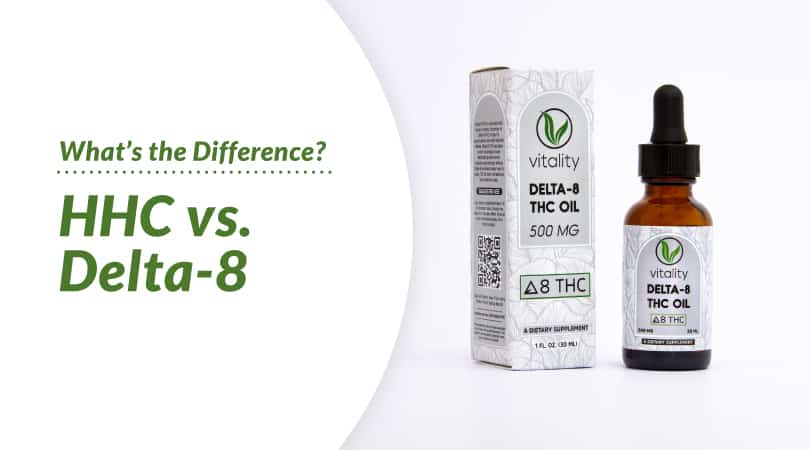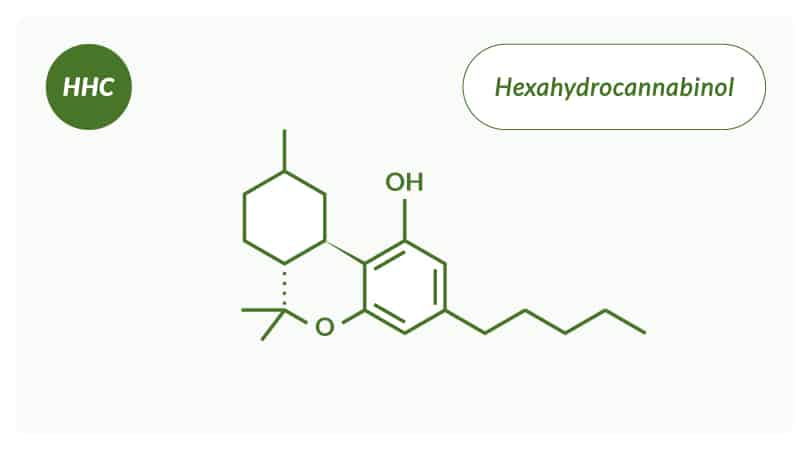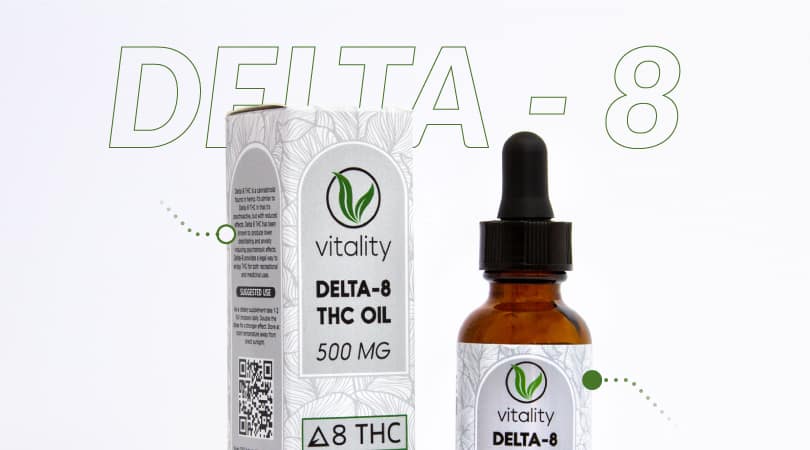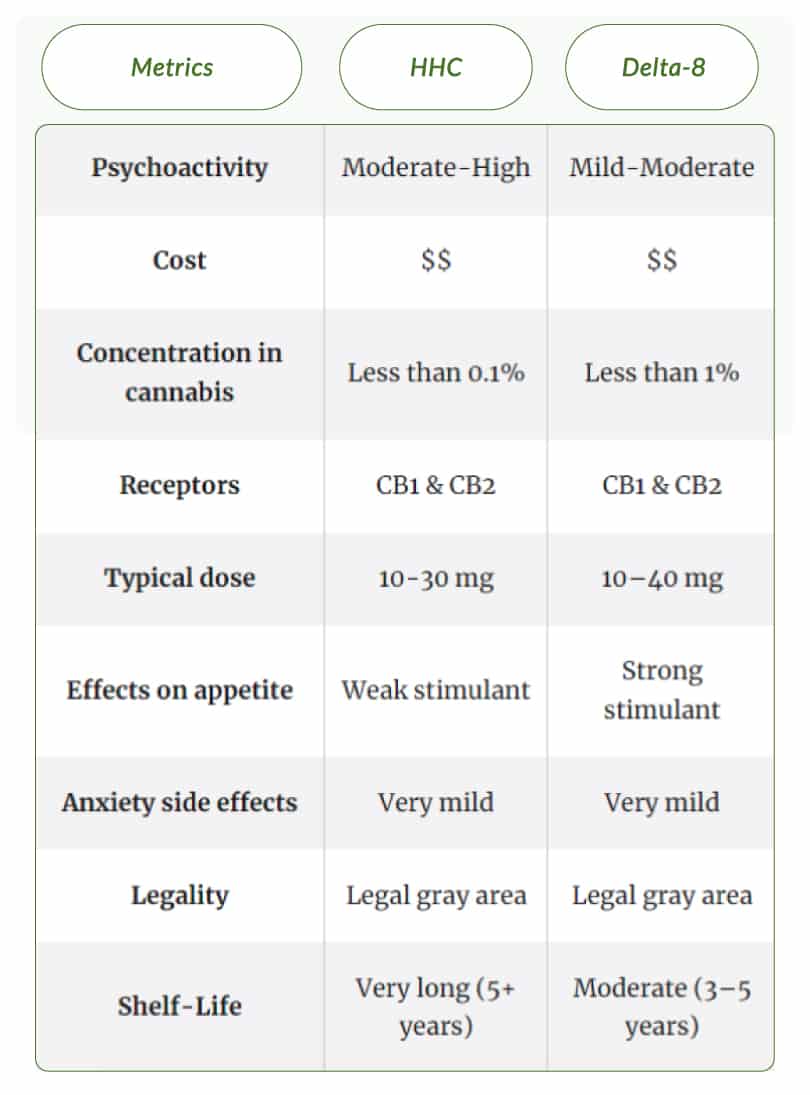
HHC vs. Delta-8: What’s the Difference?
The cannabis plant belongs to the family Cannabaceae and has been utilized for both recreational and medicinal purposes for centuries. This complex plant consists of more than 120 compounds, which all play a significant role in how cannabis products react with the body. Although there are numerous, two of the cannabinoids that have similar effects are HHC and Delta 8.
HHC vs. Delta-8
HHC

HHC, otherwise known as Hexahydrocannabinol, occurs naturally in cannabis plants but in very small concentrations. To extract a larger quantity of HHC, the process of hydrogenation is conducted. When HHC undergoes this process, its double bonds are forced to break and two extra hydrogen atoms are introduced. This strengthens its molecular structure, making it less susceptible to oxidation and breakdown. Thus, it has a longer shelf life than other forms of THC.
The biggest difference between THC and HHC are their chemical makeup, since HHC is the hydrogenated form of THC. Even so, their effects are very similar. HHC produces feelings of euphoria, temporarily increases your heart rate, and alters visual and auditory perception. Other potential benefits of HHC include:
- Pain relief
- Stress and anxiety relief
- Increased state of happiness
- Cerebral and body high
One of the other differentiators between HHC and Delta-8 are their potency. HHC is roughly 70-80% the strength of THC, making it slightly more potent than Delta 8.
Delta 8

Delta-8, also referred to as Delta-8 tetrahydrocannabinol, is a naturally occurring compound found in the cannabis plant. Its chemical structure is similar to Delta-9, which is popular for being the main psychoactive element found in marijuana. That said, Delta-8 is said to have smoother effects than Delta-9, making it appealing to many THC consumers.
Similar to HHC, Delta-8 is also found in small traces, which is why it’s often extracted from hemp-derived CBD. This is possible thanks to the similar molecular structure that different cannabinoids have, and the process that it undergoes is called isomerization. As explained in our previous article, “For this process to work, CBD must be dissolved in glacial acetic acid. As a result, CBD is first converted to Delta-9 THC. After 72 hours, half of the material becomes Delta-8 THC. For this process to be done properly, a third party should have the products tested and an experienced chemist should be in charge of the isomerization.”
As mentioned, one of the similarities between Delta-8 and HHC are their similar effects. The benefits of the Delta-8 flower, as stated in this article, include:
- Pain relief
- Smoother high
- Appetite stimulant
- Improved relaxation
- Reduced nausea
- Fast-acting effects
HHC Cannabinoid vs. Delta-8: Which Is Better?
The truth is there’s no correct answer. Personal preference will ultimately be the deciding factor for most people between HHC and Delta-8. What’s important is that all THC consumers are aware of the products that they’re using so that they can decide what works best for them. The chart below can help readers summarize the difference between the two products.

Whether you prefer HHC or Delta-8, you should use high-quality products to get the desired effects. At Vitality, we have a range of Delta-8 THC products that can be used for various reasons. Our lab-tested products are safer and milder than some alternative THC products, making them a great option for anyone interested in improving their wellness.
